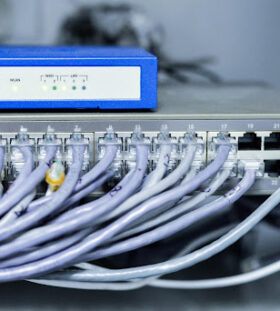VPS Hosting Resources: All You Should Know
You must have heard of the term “web hosting resources”, especially when you seek a good hosting plan. While this term may sound straightforward, it is a very important consideration that can never be ignored when you wish to acquire the right hosting plan. Yet, many hosting service providers often assume prospective clients already understand its meaning.
Hosting resources are not so difficult to understand, regardless of your experience level in maintaining and running servers. When you arm yourself with this knowledge, you can start considering the right plan that your website needs. You must have heard of shared hosting, VPS hosting plans, and dedicated hosting. Visit vpsserver.com to get more information
If your website is experiencing significant growth, then the various features offered by VPS make the hosting plan the right one for you. Yet, you should know more about the features and resources that make a VPS such a popular hosting plan. This is what you will learn when you keep reading this guide. So, let’s dive in!
Table of Contents
What is VPS?
Virtual Private Server (VPS) is a type of hosting plan, which is based on virtualization technology. Basically, this involves a single physical server that is divided into different independent, virtual servers with the aid of a hypervisor. These are then distributed to the users.
The resources (which will be discussed soon) are uniquely allocated to each user. These users are not required to share their resources with other users. From its name, the server is virtual since it employs the use of virtualization technology. Users can enjoy privacy, which implies that the resources allocated are for the user’s private use.
Compared to shared hosting, VPS offers a higher level of control and customization. This is exactly what growing businesses need – the ability to customize their server based on their needs.
With a shared server, a disruption in one website on the server may affect the performance of another website on the same server. This is never the case with VPS hosting. The added virtual layer ensures that even though all the websites share a single server, they are completely isolated from one another. This implies that the performance of different websites on that single physical server is not dependent on one another.
Besides this, acquiring a dedicated server can be too financially demanding for most companies. However, VPS ensures that most organizations can enjoy essential resources offered by dedicated hosting, which is sufficient enough for the growth of their businesses.
A Look At VPS Resources
The benefits hosting plans offer are direct consequences of the resources they provide. This makes these resources very important to the functions of your website. Here are the most common resources of virtual private servers you should acquaint yourself with:
Bandwidth
Bandwidth refers to the capacity of data that can be transferred between a site user and the server. You can express bandwidths in Megabytes per second (MB/s) or Gigabytes per second (GB/s). In other words, this is the rate at which servers can successfully transfer.
Simply put, bandwidth controls how fast content can be displayed to visitors on your website. You can think of bandwidth as a broom. The larger the broom, the more dirt it can sweep at a specific period. Before you acquire a VPS hosting plan, ensure that you check the bandwidth.
Most VPS hosting plans offer unlimited bandwidth. However, the bandwidth speed is what you should check out for. Usually, anything above 100 Mbps is good enough for you. Furthermore, some hosting plans may list bandwidth in terms of the number of visitors (or traffic).
Bandwidth is probably the most important resource you should consider before choosing a VPS hosting plan. After all, regardless of the amount of space you have, the performance of your website will suffer if you have low bandwidth. In this case, your website will be overwhelmed when the data transfer is too large.
Solid State Drive (SSD) Storage
A Solid State Drive (SSD) represents a piece of hardware that can be used to store data on a computer device. Every server has one and this makes it a very important resource to consider before considering the right hosting plan to choose.
The amount of data that your SSD can store will determine the website’s maximum size. This is often listed in Gigabytes (GB). Yet, there are many factors that determine the size of your website. These could include dynamic content and media files.
However, it must be stressed that on average, the size of a web page is about 2 MB. There are many tools, including Pingdom Tools, that can help you achieve a closer calculation of your total website size. You can estimate the size of some of the pages on your website. By figuring out an average, you can multiply this by the number of pages present on the website.
Central Processing Units (CPUs)
The Central Processing Unit (CPU) is another allocated resource a user of a VPS hosting plan may choose not to share with other users. The CPU is analogous to the brain of the server.
What this implies is that the CPU is capable of handling the different requests that a server must carry out before the site can be accessed and enjoyed by visitors. Without the CPU, your website cannot function since these processes cannot take place.
Oftentimes, a CPU comes with two or more cores. The processing power is increased when additional cores are added. With this, it becomes easier for your server to handle more requests and processes while carrying them out quickly.
The CPU is one of the most prominent features of a server that you will most likely see when looking for the right VPS hosting plan to acquire. Usually, higher-tier plans will offer you additional cores.
High volumes of scripting requests and traffic surges can overwhelm your CPU, if not sufficient enough while causing downtime for your site. Some of the best indicators that should determine the number of CPUs you need includes the number of dynamic elements in your site and the traffic volume.

Random Access Memory (RAM)
Random Access Memory is a short-term memory that your server must use, especially when multiple requests are being processed at once. The speed at which this can be done without any glitches is determined by your Random Access Memory.
After all, while the Central Processing Unit is responsible for the actual processing, Random Access Memory must hold the relevant data. When you exhaust your RAM, you can come across a 500 Internal Server Error on your site.
RAMs are typically listed in VPS hosting plans in GBs.
Do I Need a VPS?
Whether or not you need a Virtual Private Server depends on the growth of your website. For instance, for a new website owner, a VPS hosting plan can be too big to consider. In this case, a shared hosting plan is the right choice to embrace. After all, it is easier to embrace and cheaper.
However, as your website grows with more content and a higher volume of traffic, you need features that are beyond the limits of a shared hosting plan. Then, you may start considering an upgrade. Generally, there are instances that can determine your need for a VPS:
When Security is a Challenge
Anytime you need certain features to help you increase your level of security, then you can choose a VPS hosting plan. With the advanced monitoring capabilities and backup space, you can enjoy a higher level of security with the use of a VPS.
When a Budget-friendly Option is What You Need
Dedicated hosting offers the best features. Yet, it is too expensive, making it financially inaccessible for most organizations. This is when a VPS can come to the fore. With a VPS hosting plan, you can enjoy most of the advanced features offered by dedicated hosting at a significantly lower price. This makes it sufficient enough for growing businesses.
The Performance of Your Website is Below-par
As mentioned earlier, when you start running a website, a shared server is the best option. Yet, when the traffic volume becomes higher, your website on a shared server starts becoming slower and the performance suffers. As a result, your website load times may reduce with more content added to the website. This is the right time to start thinking of acquiring a VPS hosting plan.
Conclusion
A virtual private server is a good hosting solution that can offer you the features your site needs. However, you should choose a hosting plan based on the various features and resources offered by the plan. While these resources may appear vague, they are the most factor that can contribute to the performance of your website as you find the right plan.
As discussed in this comprehensive guide, ensure that you acquaint yourself with the various resources that a particular VPS hosting plan offers you. These resources come in the form of a Central Processing Unit (CPU), Solid State Drive (SSD), Random Access Memory (RAM), and Bandwidth.


